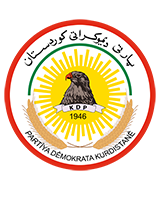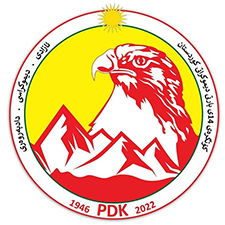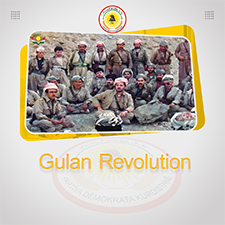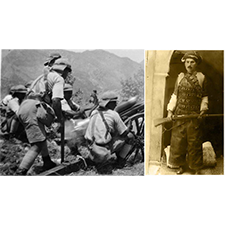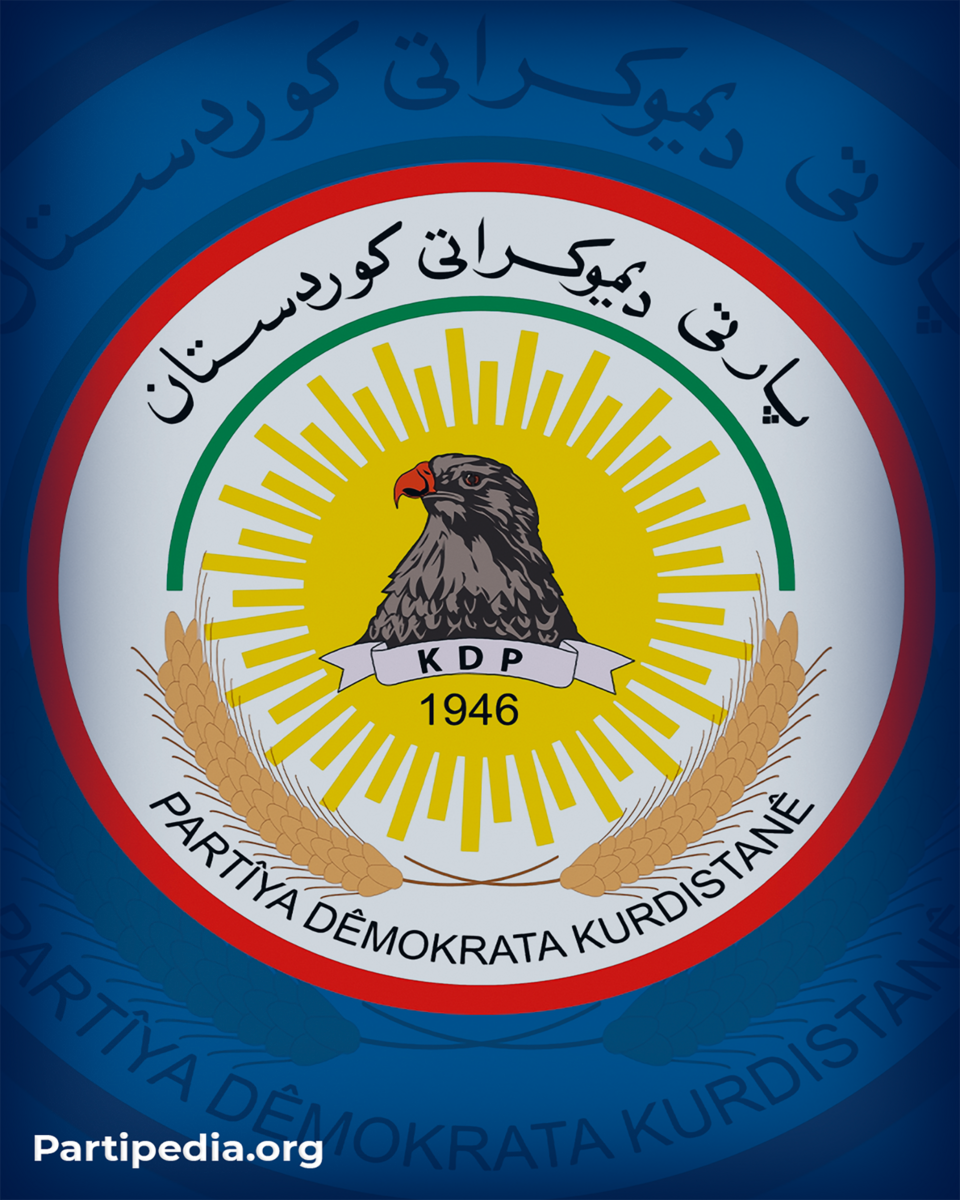Reason for Holding the Congress
On June 10, 1963, the regime resumed its offensive against Kurdistan and sent all its armed forces to the battlefields. In these attacks, the regime also received assistance from regional forces in the region. Turkish and Iranian air forces, which were members of the Santo Treaty, were allowed to cross the Iraqi border and bombard Peshmerga bases. The Syrian army entered Iraq by land and helped the Iraqi army in Badinan. International forces such as the Soviet Union and Britain also began to help the Iraqi army.
The Kurdistan Army opened several fronts to defend itself and resisted the attacks. During this period, President Mustafa Barzani sent several letters to the PDK Political Bureau, asking Ibrahim Ahmad, the party secretary and the Political Bureau, to carry out several attacks on the army in their areas. However, the Political Bureau, especially Ibrahim Ahmed, did not respond to their demands and even prevented commanders from attacking government forces without their consent. These behaviors created a chill between President Mustafa Barzani and Ibrahim Ahmed.
On November 18, 1963, the Ba'ath government was overthrown by the army. After the coup, Abdul Salam Arif took power and directly called on the revolutionary leadership to negotiate. In December 1963, after President Barzani consulted the Political Bureau, negotiations began and Colonel Abdul Razzaq Mahmoud, the governor of Sulaimani, came to Ranya as the government representative and met with President Mustafa Barzani, and Jalal Talabani and Nuri Shaweis, the Political Bureau members. The discussions led to an agreement between the two sides and a statement. The agreement was announced by the government on February 10, 1964, which indicated that "the state recognizes the national rights of the Kurds."
On February 17, 1964, Ibrahim Ahmad, Aziz Shamzini and Omar Mustafa Dababa came to Sangasar and met with President Barzani. The result of the meeting was the agreement of all parties on the February 10 agreement. After staying a week in Sangasar, Ibrahim Ahmad and his comrades returned to Mawat, where they resumed their opposition, causing a large number of commanders and Peshmergas to leave Mawat to join President Barzani in Sangasar and reveal the plan of the Political Bureau to him. After the arrival of the Peshmerga commanders, President Barzani held a meeting with them and after consultation, decided to remove all the commanders who followed the Political Bureau and replace them with other commanders who are reliable. The removed commanders were Jalal Talabani, Omar Mustafa Dababa, Ali Askari and Kamal Mufti. In response, Ibrahim Ahmad and the Political Bureau held a conference in Mawat on April 9, 1964 and decided to suspend President Mustafa Barzani from the party presidency.
The Peshmerga forces were divided into two factions following the suspension of President Mustafa Barzani. The High Monitoring and Inspection Committee proposed to hold the sixth congress to maintain the unity of the Kurdistan Democratic Party (KDP). For this purpose, they visited Mawat, the headquarters of the Political Bureau, and Sangasar, the headquarters of the president. As a result, President Mustafa Barzani agreed to hold the congress, but the Political Bureau was not in favor of holding the congress.
Holding a congress
The congress was held from July 1 to 7, 1964, in the town of Qaladze, with the presence of 639 delegates. From the very beginning of the congress on July 1, President Mustafa Barzani decided to sent a delegation of twelve representatives of the congress, who were: Ismail Mullah Aziz, Ali Hazhar, Majid Atroshi, Ahmed Atroshi, Fatih Mohammed Dr. Amin, Jala Mahmood Beg, etc to Mawat to ask the group there to attend the congress and present their problems, but they refused to participate in the congress. Although the congress was delayed for several days, it resumed its work and issued several decisions, the most important of which were: the establishment of the revolutionary leadership council, rejecting the decisions of the Mawat Conference and expelling fourteen members , who were: Ibrahim Ahmed, Nuri Shaweis, Omar Mustafa Dababa, Sayed Aziz Sayed Abdullah Shamzini, Jalal Talabani, Ali Hamdi, Abdulrahman Zabehi, Ali Askari, Ahmed Abdullah, Hilmi Ali Sharif, Mohammed Haji Tah Yer, Mullah Abdullah Ismail "Mullah Motor", Nuri Ahmed Taha and Ali Abdullah.
President Mustafa Barzani was unanimously re-elected as the party's leader, and a new central committee was elected, including fourteen people directly elected by the congress delegates and three people nominated by the president for leadership members, namely: Mustafa Karadaghi, Mohammed Amin Mohammed Ali and Omar Sharif. The congress delegates had entrusted the president with the election of these members.
The new central committee members were:
1- Mustafa Barzani, President
2- Habib Mohammed Karim, Secretary
3- Dr. Mahmoud Osman
4- Saleh Yousfi
5- Aziz Akreyi
6- Dr. Fuad Jalal
7- Yadullah Faily
8- Ali Qasim Sinjar
9- Naaman Isa Sharif
10- Ismail Arif
11- Hashim Hassan Akreyi
12- Ismail Mullah Aziz
13- Sheikh Mohammed Harsin
14- Mustafa Karadaghi
15- Mohammed Amin Mohammed Ali
16- Omar Sharif
17- Ramazan Akreyi
18- Fatih Mohammed Amin.
Then the Central Committee chaired by Mustafa Barzani elected members of the Political Bureau and Secretary, who were: Habib Mohammed Karim, Secretary, Dr. Mahmoud Osman, Mustafa Karadaghi, Ismail Arif Ghafoor and Hashim Akreyi. The congress delegates also elected The High Monitoring and Inspection Committee directly, who were Shawkat Haji Ali, Fares Koremarki, Mohammed Mullah Qadir, Sabri Botani, Mullah Salih Haji and Mullah Haider Mohammed Hussein.
The congress also elected a new leadership and approved its program and internal rules.
Sources:
• مسعود بارزانی، بارزانی و بزووتنهوهی رزگاریخوازی كورد، ١٩٥٨-١٩٦١، بهرگی دووهم، (٢٠١٢).
• صلاح الخرسان، التیارات السیاسیة في كردستان العراق، قراءة في ملفات الحركات و الأحزاب الكردیة في العراق ١٩٤٦-٢٠٠١، (بیروت – مطبعة البلاغ – ٢٠٠١م).
• حبیب محمد كریم، تأریخ الحزب الدیمقراطي الكوردستاني ـ العراق (في محطات رئیسیة) ١٩٤٦ ـ ١٩٩٣، (دهوك ـ مطبعة خهبات ـ ١٩٩٨م).
• نزار خهیلانی، ئهسعهد خهیلانی دهفتهری بیرهوهریهكانی ههڵدهداتەوه، (ههولێر ـ دهزگای چاپ و بڵاوكردنهوهی بهدرخان ـ چاپخانهی هێڤی ـ ٢٠١٤ز).
• عبدالستار تاهر شهریف، ململانی لهگهڵ ژیاندا یادداشت ١٩٧١ ـ ١٩٣٥، بهرگی یهكهم، (كهركووك ـ چاپخانهی ئارابخا ـ ٢٠٠٥ز).
• حوسێن محهمهد عهزیز، پێنج كاتژمێر لهگهڵ (برایم ئهحمهد)دا، (سولهیمانی ـ چاپخانهی سیما ـ چاپی سێیهم ـ ٢٠٠٢ز).
• شكیب عقراوي، سنوات المحنة في كوردستان اهم الحوادث السیاسیة و العسكریة في كوردستان و العراق من ١٩٥٨ الی ١٩٨٠، الطبعة الثانیة، (اربیل ـ مطبعة منارة ـ ٢٠٠٧م).
• علي سنجاري، القضیة الكوردیة وحزب البعث العربي الاشتراكي في العراق، الجزء الثالث، (دهوك ـ مطبعة خاني ـ ٢٠١٢م).




